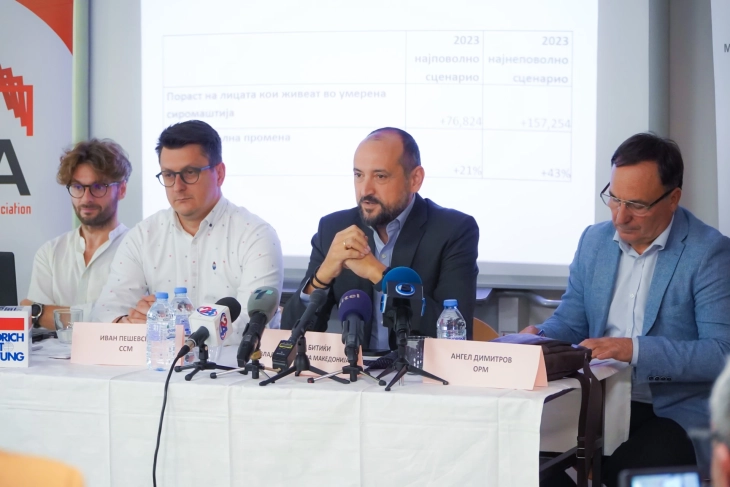By the close of 2023, it is foreseen that Macedonia will be home to approximately 510,000 citizens grappling with moderate poverty, as outlined by the economic researcher, Prof. Dr. Branimir Jovanovikj. This category comprises individuals whose daily income falls below Mden 200, leaving over a quarter of the nation’s population with limited financial means for their fundamental survival. These stark findings were unveiled during a panel discussion titled “Decent Life or Survival?” organized by the Macedonian Anti-Poverty Platform (MAPP) on October 17, in observance of the International Day for the Eradication of Poverty.
The study, conducted in collaboration with the Sustainable Inclusive Growth Association, examined poverty at two levels: extreme and moderate. Extreme poverty was characterized as subsisting on less than Mden 60 per day, while moderate poverty referred to those with daily incomes below Mden 200. Jovanovikj underscored that extreme poverty is anticipated to surge by 12,000 to 28,000 individuals, marking a 20% to 50% increase compared to the situation before the crisis when approximately 56,000 people lived in extreme poverty.
However, the expansion of moderate poverty is even more substantial, with an estimated rise of 80,000 to 160,000 individuals. Prior to the crisis, roughly 360,000 people were situated in this category, but current data suggests this number could soar to 510,000.
Jovanovikj recommended the necessity of implementing price caps and sustaining them for an extended duration to mitigate price hikes and inflation, all the while augmenting people’s incomes. He acknowledged that these measures may not entirely eradicate poverty but could, to some extent, alleviate the situation.
Ivan Peshevski, Vice-President of the council of the Federation of Trade Unions of Macedonia (SSM), emphasized that despite statistical wage growth, poverty is on an upward trajectory, leading to a reduction in purchasing power. He urged that wages be boosted to address this predicament.
Fatmir Bytyqi, the Deputy Prime Minister responsible for economic affairs, conceded that poverty is a global predicament and highlighted the government’s efforts to shield vulnerable populations during various crises. He stressed the significance of crafting evidence-based policies and systemic solutions to ensure stability and safeguard the welfare of those at risk.
The discussion was instigated by Biljana Dukovska, President of MAPP, who underscored that the battle against poverty is a political decision necessitating the collective commitment of all citizens.





Comments are closed for this post.